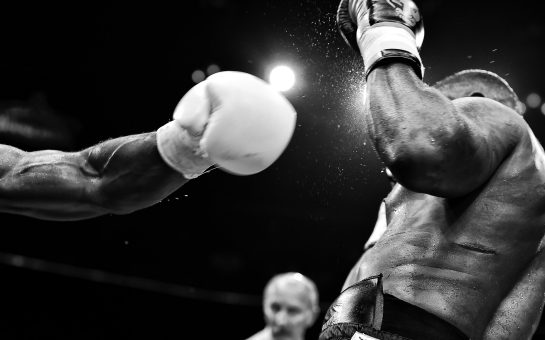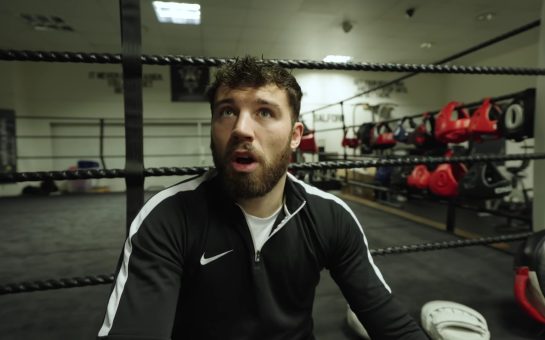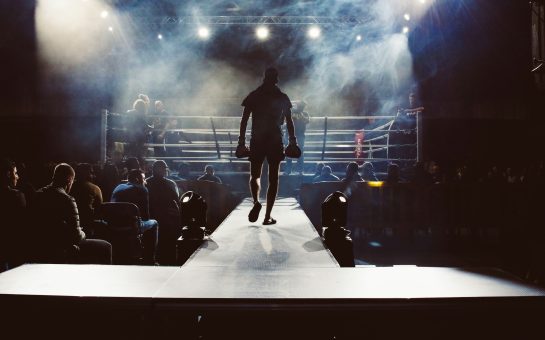He said he’d go to London and beat Dereck Chisora in 2011. He said he’d go to Dusseldorf and beat Wladimir Klitschko in 2015. He said he’d go to Los Angeles and beat Deontay Wilder in 2018. And he said he’d go to Las Vegas and beat Wilder again in 2020.
Not many believed him, but Tyson Fury stuck to all four promises he made and delivered emphatically.
Each time, Fury was the ‘challenger’ – challenging the ‘champion’ in the champions’ backyard – something that clearly didn’t faze him one bit.
But the victory over Wilder on Saturday night stood out from the rest of the others. There was an element of unfinished business about Fury’s second fight in the space of less than 15 months with Wilder, and it was business he duly attended to.
The unjust judges robbed him of a clear victory over Wilder in December 2018 in LA, but he wasn’t to be denied in Vegas because he took the decision out of the judge’s hands by producing the best performance ever by a British boxer on away soil.
When heavyweight icons Mike Tyson, Lennox Lewis and Evander Holyfield stood in the ring before the fight started, there was an aura around the MGM Grand that something very special was about to happen. And it did.
Fury’s ring walk was one of the most extravagant yet serene there has ever been — entering the ring on his throne dressed in crimson-coloured king’s robes.
Although Fury inevitably removed his robes before the fight started, the crimson soon reappeared somewhere else – the blood that covered Wilder’s face and body.
It was expected that Wilder would take the fight to Fury and force the Gypsy King to fight on the back foot and counter, as was the case in the first fight. But that didn’t happen.
Instead, Fury immediately took centre ring and asserted his authority. Rather than round one in their second fight, it was as if their first fight had entered round 13.
Although Wilder knocked Fury down heavily in the final round in LA, Fury didn’t just get back up; he got back up and put Wilder on the back foot.
Wilder was on the back foot from the second the bell rang in the first round in Vegas. It was as dominant a first round as you’re ever likely to see in a fight of such magnitude. Wilder looked nervous and bewildered, but Fury looked supremely confident.
The American didn’t know how to respond until the second round where he came out with the same mindset he came out with in the twelfth round of the first fight – a desperate one where he began swinging bombs towards the head of Fury.
Fury responded by dodging them comfortably and hitting Wilder back hard. In round 14, the same pattern of rounds 1-11 had been resumed with Wilder’s swings being countered by Fury’s masterful boxing IQ and counter-punching.
The tide turned again in round 15, and this time Fury scored a knockdown by landing a huge right hand on Wilder which saw the Bronze Bomber dropped for the first time in his professional career.
The Fury onslaught continued into the fourth, and by the fifth round it had turned into a battering when Fury sunk Wilder to the canvas once more with a fierce body shot.
In the first fight, Wilder’s two knockdowns were simply moments and flashpoints in the fight. It didn’t disrupt the pattern of the bout as Fury continued to outbox Wilder.
In the second fight, Fury’s two knockdowns also didn’t disrupt the pattern of the fight – they continued the pattern of Fury giving Wilder a real pasting.
Credit to gutsy Wilder, he hung in there past the sixth, but in the seventh his team threw in the towel with blood seeping from his left eardrum and his bottom and top lip being positioned at unfamiliar coordinates on his face.
What Wilder had done to all of his opponents, Fury did to him – bullied him.
In two fights between the pair, Fury gave Wilder a boxing lesson for 19 rounds.
The premier hitter in the boxing’s premier division had been outfought and quite frankly well beaten by a man who has spent his life defying odds.
“The king has returned to the top of the throne,” Fury told BT Sport after the fight.
“Big shoutout Deontay Wilder. He came here tonight, he manned up, he really did show heart of a champion. I hit him with a clean right hand and dropped him, and he got back up and battled on into round seven.
He is a warrior, he will be back, and he will be a champion again.”
The biggest fight of my era will be@BronzeBomber ! But ill knock him out!
— TYSON FURY (@Tyson_Fury) October 29, 2013
Britain’s heavyweight dynasty
When Fury beat Klitschko in November 2015, he overthrew the Klitschko dynasty in the heavyweight division to become lineal heavyweight champion of the world.
In 1998, fellow British heavyweight Lewis won the same title when he beat Shannon Briggs.
Lewis de-railed the American heavyweight dynasty. For 63 out of 64 years between 1934 and 1998 (bar 1959-60 when Swede Ingamar Johansson held the status), the lineal heavyweight championship of the world had been held by an American.
Fury has twice stopped Wilder reasserting American lineal status, and he has emulated Lewis by going to America and beating a man from Alabama in a rematch after an unfair draw the first time round (as Lewis did with Holyfield in 1999).
The presence of Lewis, Tyson and Holyfield before the fight signalled the fight’s deeper meanings – the winner would at the end of the fight share their status as heavyweight boxing royalty.
As well as being lineal champion, Fury is now the WBC and Ring Magazine champion, while Anthony Joshua holds the WBA, WBO and IBF belts. Dillian Whyte is WBC mandatory challenger, while Chisora is potentially on the verge of a bout with WBO mandatory challenger Oleksandr Usyk this year.
Daniel Dubois and Joe Joyce, who face each other at the O2 on April 11, are loitering on the edge of world level.
The British heavyweight boxing dynasty is firmly upon us, and it is here to stay.



